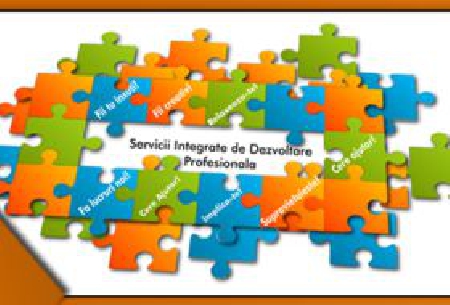Jobs for the Disabled
Statistics at European level reveal that roughly one active person out of six admits to having a long term condition or disability. Figures also show that the employment rate for the disabled across the EU stands at around 50 per cent, as compared to 68 p

Eugen Cojocariu, 26.04.2012, 16:08
Unemployment among the disabled stands at twice as much than the unemployment figure among the other categories of the active population. Against that backdrop, the Estuar Foundation in Romania has launched www.faraeticheta.org the first online job platform for people with disabilities. With details on that, here is Raluca Chiriac, the foundation’s vocational advisor:
Raluca Chiriac: “The idea of the platform is part of a larger scale project, Invest in People, co-financed by the POSDRU European Social Fund, through the Human Resources Development program. We wanted the program to act as an Internet-based meeting place between people with disabilities, that is between people with mental health problems, and employers — people who are willing to hire those facing such problems. In short, it is an online recruitment site, but one that is tailored for people with disabilities.”
In October 2011, Sulfina Barbu, then Labor Minister of Romania, said that a little over 12 per cent of the country’s disabled population have jobs. The small number of vacancies and the inadequate qualification of such people are some of the reasons mentioned by employers for this situation. Adding to that is the poor knowledge of the employment opportunities for the disabled. We asked Raluca Chiriac about the employment problems the disabled are facing in Romania.
Raluca Chiriac: “People with mental health problems or with other disabilities will certainly find it a lot more difficult to get a job, and society, employers are not yet receptive enough or are poorly informed, which is why they are reluctant to hire people with such problems. Yet progress has been made in this respect.”
To encourage the social inclusion of the disabled, the Romanian government offers tax facilities to all business operators recruiting and hiring people in that category. A law was passed in 2006, forcing companies with at least 50 employees to hire people with disabilities up to at least 4% of the total number of employees. Alternatively, companies may choose to pay to the state budget a monthly sum standing at 50% of the national minimum gross salary, multiplied by the number of jobs that are not taken by disabled people. The platform www.faraeticheta.org offers employers detailed information on what qualifies as disability, especially mental disability. Raluca Chiriac adds:
Raluca Chiriac: “We try to help employers understand that hiring people with mental health problems benefits society, all of us all in the long run, because those people will thus be able to support themselves and won’t get support from the state alone. So we help ourselves by helping each other.”
Moreover, the lack of a constant occupation, the need to belong to a social group and to be socially valued make disability a lot more difficult to bear, leading to deterioration of that person’s and their family’s well-being. Another problem regarding the information employers should have has to do with how jobs must be adapted to the employee’s needs:
Raluca Chiriac: “As a foundation that has been working with disabled people for more than 18 years now, we can help employers by providing the information they need on how to tailor working conditions so that a person with a mental health problem can have maximum efficiency at work, just like any other person. Employers should know that from the very beginning, so that they can plan their activity knowing that every now and then, such a person may not feel very well and may not be as efficient as they usually are. Also, these people should not be assigned high-stress positions, meaning that tasks need to be very simple and clearly explained, with no ambiguities… In case of problems, we also talk with the employers and employees. We also stay in touch, after employment, with those who hire people with mental health problems. “
The online recruitment platform www.faraeticheta.org, addressing people with disabilities, was launched in December 2011. At present there are 11 vacancies and 158 applications posted on that site. The latter mainly focus on office work — secretarial or administrative — but also on practical activities. According to the initiators of the project, the Estuar Foundation, it will benefit everybody, and it is crucial for employers to know from the very beginning that these applicants have a mental or physical problem and belong to a vulnerable group.






























